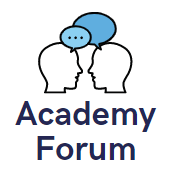
As leader of our PGCTHE programme, I keep an eye out for resources to help staff teach effectively. These include webinars, podcasts, online toolkits, publications and more. Topics include active learning, online/blended teaching, accessibility/inclusion, and effective learning design based on cognitive science. Below I’ve listed items that came to my attention in the past week. In the interest of clarity, our policy is to show the titles and descriptions in the language of delivery.
Online events and webinars
- 9-10/6/2021 WonkHE, Wonk Festival of Higher Education #BuildBackHigher
- 15/6/2021 Advance HE, Disability Colloquium: Improving support for disabled staff in higher education
- 29/6/2021 Advance HE, Race Equality Colloquium: Decolonising Pedagogy
- 1/7/2021 Assessment in Higher Education (AHE) network, AHE annual conference free keynote addresses
- 2/7/2021 Academic Practice and Technology (APT) conference, Reflecting for the future; higher education in disruptive times
- 15/7/2021 Advance HE, Gender Equality Colloquium: Advancing gender and sex equality through research design
- 7-9/9/2021 Association for Learning Technology (ALT), ALT Annual Conference 2021 – Shared Experience, Different Perspectives
Resources and publications
- Beckingham, S. (2020), Co-creating learning experiences with students as partners, The Journal of Social Media for Learning
- Brown, Nicole (25/5/2021), Make enablement the legacy of the COVID-19 pandemic, Transforming Society
- Eronen, S. & Mihai, A. (3/5/2021), From solo artists to jazz ensembles: Peer support as a tool for teacher development, The Educationalist
- Gillaspy, E. & Vasilica, C. (2021), Developing the digital self-determined learner through heutagogical design, Higher Education Pedagogies, 6:1, 135-155,
- Harvard, B., The Effortful Educator Blog, “applying cognitive psychology to the classroom”
- Hoon, A., Oliver. E., Szpakowska, K. & Newton, P. (2015) Use of the ‘Stop, Start, Continue’ method is associated with the production of constructive qualitative feedback by students in higher education, Assessment & Evaluation in Higher Education, 40:5, 755-767
- Kight, C. (14/8/2020), Introduction to Brookfield’s Four Lenses (reflective practice) (video 6 minutes)
- Lubicz-Nawrocka, T. & Bovill, C. (2021), Do students experience transformation through co-creating curriculum in higher education?, Teaching in Higher Education, (10)
- Martin, F., Bolliger, D. U., & Flowers, C. (2021). Design Matters: Development and Validation of the Online Course Design Elements (OCDE) Instrument. The International Review of Research in Open and Distributed Learning, 22(2), 46-71.
- Mihai, A. (25/5/2021), Critical thinking and the art of asking a good question, The Educationalist
- Open University, The why and how of referencing, Open University Library Services (video 32 minutes)
- Ryan, T., Henderson, M., Ryan, K. & Kennedy, G. (2021), Identifying the components of effective learner-centred feedback information, Teaching in Higher Education
- Salmon, G. (24/5/2021), Digital Empathy using the 5 Stage Model (video 13 minutes)
- Sambell, K., Brown, S., & Adamson, E. (2021). Engaging with feedback processes in workplace settings. Student Engagement in Higher Education Journal, 3(2), 54-73.
Please see the Staff Training booking page for training offered by the LTEU and other Aberystwyth University staff. I hope you find this weekly resource roundup useful. If you have questions or suggestions, please contact our team at lteu@aber.ac.uk. You may also wish to follow my Twitter feed, Mary Jacob L&T.


